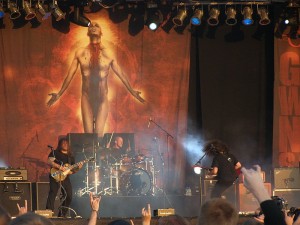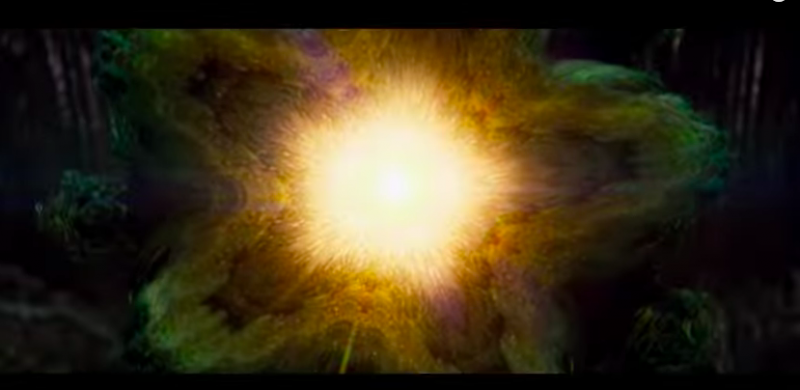aNewDomain — If you come to Coheed and Cambria’s newest album (or any of their others) without first getting into the “Armory Wars” series penned by the band’s front man, Claudio Sanchez, you’ll probably feel pretty disoriented. Coheed and Cambria are the names of characters from Sanchez’s writing. The albums track volumes of the “Armory Wars” series, and the books and other creative projects frame the band’s music in various ways. But even if you’ve never read “Armory Wars,” you’ll get something out of “The Color Before the Sun” in a musical sense.
 Described as “prog-rock” by some, the band has an eclectic sound that’s resident on this album. For example, on the second track, “Eraser,” you’ll start to hear elements of sounds you might associate with Tool, Korn, Linkin Park, or Weezer, along with some Adam Levine-style falsetto, some spoken word, and some laughing on the track. (There’s also a loud, somewhat-irritating siren sound at the end.)
Described as “prog-rock” by some, the band has an eclectic sound that’s resident on this album. For example, on the second track, “Eraser,” you’ll start to hear elements of sounds you might associate with Tool, Korn, Linkin Park, or Weezer, along with some Adam Levine-style falsetto, some spoken word, and some laughing on the track. (There’s also a loud, somewhat-irritating siren sound at the end.)
Other tracks, like “Colors” and “Ghost,” are quieter and more lyrical, and you hear more of the dialogue that you assume comes from the plot line of the books. That contrasts with the starkly “electro” sound of other tracks like “Here to Mars.”
The band also got at least one single out of the album, with “You’ve Got Spirit, Kid.” Again, you have to assume this is written about a fictional character, but it could just as easily be a paean to the teens and 20-somethings of today’s America, a kind of ode to their ambition, their resilience and the challenges they face:
Oh you got spirit, kid, you’re number one / Go on living that farce, ’cause nobody gives a f**k who you are / So why are you crying? When you’ve got the world to command …”
From there, the listener follows the arc of the album into a distinctly different track opened by a kind of “Symphony for the Devil”-intro that foreshadows a darker, more sinister story:
Please allow me to introduce myself / I’m the lie you use / Surrounded by snakes and talking sharks / Be mindful the words you choose …”
Framed by aggressive guitar work reminiscent of A7 or metalcore, the song “The Audience” brings the fight to the “thieves of our time,” sketching a conflict with deep roots, if only vaguely:
Take all matters into your own hands / Let them play with the coward who can command / Now you’re just a memory / Of humanity …”
By the time we get to “Peace to the Mountain,” we’ve heard a lot, and this end track puts the album to bed with a lyrical suggestion of a life that, beleaguered by what has been, writes its own epitaph:
So let me go, where no-one can follow, lost with my conscience, please bury me honest / The song drones, I drink myself hollow, regrets grow regardless, please bury me honest … I promise I’ll go in peace, when I’m free …”
As the last strains of the concept album die out, if you’ve listened this long, it’s probably time to go buy a couple of the “Armory Wars” editions and figure out a little bit more about this story.
For aNewDomain, I’m Justin Stoltzfus.
Images courtesy: HeavyMezza89 via Wiki Commons













